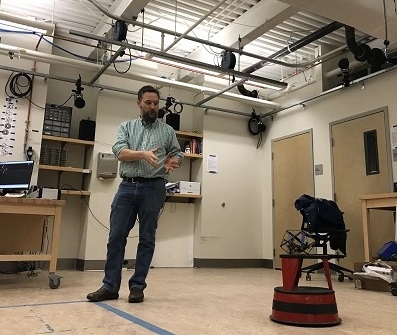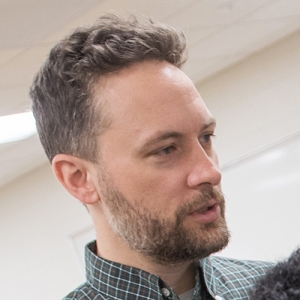$306,200; U.S. National Science Foundation (NSF) Foundational Research in Robotics (FRR)
Collaborative Research: EvoFab – A Fully Automated Robotic Factory that Designs, Builds, and Tests Soft Actuators
Principal Investigator: John Rieffel, professor of computer science
Compliant robots driven by soft actuators have applications in food handling, wearable devices, and surgical tools, as well as in many other areas that require the safe manipulation of easily damaged items. These soft robots often draw inspiration from biological organisms such as octopuses and jellyfish. These systems are, however, very difficult for humans to design and manufacture, because of their material complexity. This project aims to develop a proof-of-concept robotic factory, EvoFab, for the automated design, fabrication, and testing of novel soft actuators. EvoFab will combine innovative evolutionary simulations that test and iterate on millions of potential solutions with fully automated fabrication and in-situ characterizing to design, manufacture, and test air pressure-powered soft actuators. This fully automated framework will automatically design, fabricate, and test against the simulated predictions. When the manufactured item fails, without human intervention, EvoFab will recycle the failed parts, re-use the materials, and recalibrate and repeat the process until an actuator’s performance is comparable to the simulations.
Ultimately, these discoveries will advance our understanding of soft actuators and state-of-the-art, modern manufacturing processes and automated factories. In the future, this proof-of-concept robotic factory will lead to the development of sophisticated robotic factories that can produce increasingly complex devices, including fully functional soft robots. This highly integrated and automated system will also lead to fundamental advancements in fabrication-aware evolutionary design, multi-material printing, and sustainable recycling.
Institutions collaborating on this project include Union College (Schenectady, NY) and Tufts University (Medford and Somerville, MA). In addition to the significant scientific contributions of this research, this project will provide training education opportunities for the emerging generation of robotics researchers and the robotics workforce. The interdisciplinary team of “near peers” that blends undergraduates at Union with undergraduates and graduate students at Tufts will be provided with the unique opportunity to contribute to cutting edge research early in their academic years. At Union, additional students will be exposed to this research through the inclusion of themes of this work into credit bearing research practica and upper-level electives in the Computer Science curriculum.

